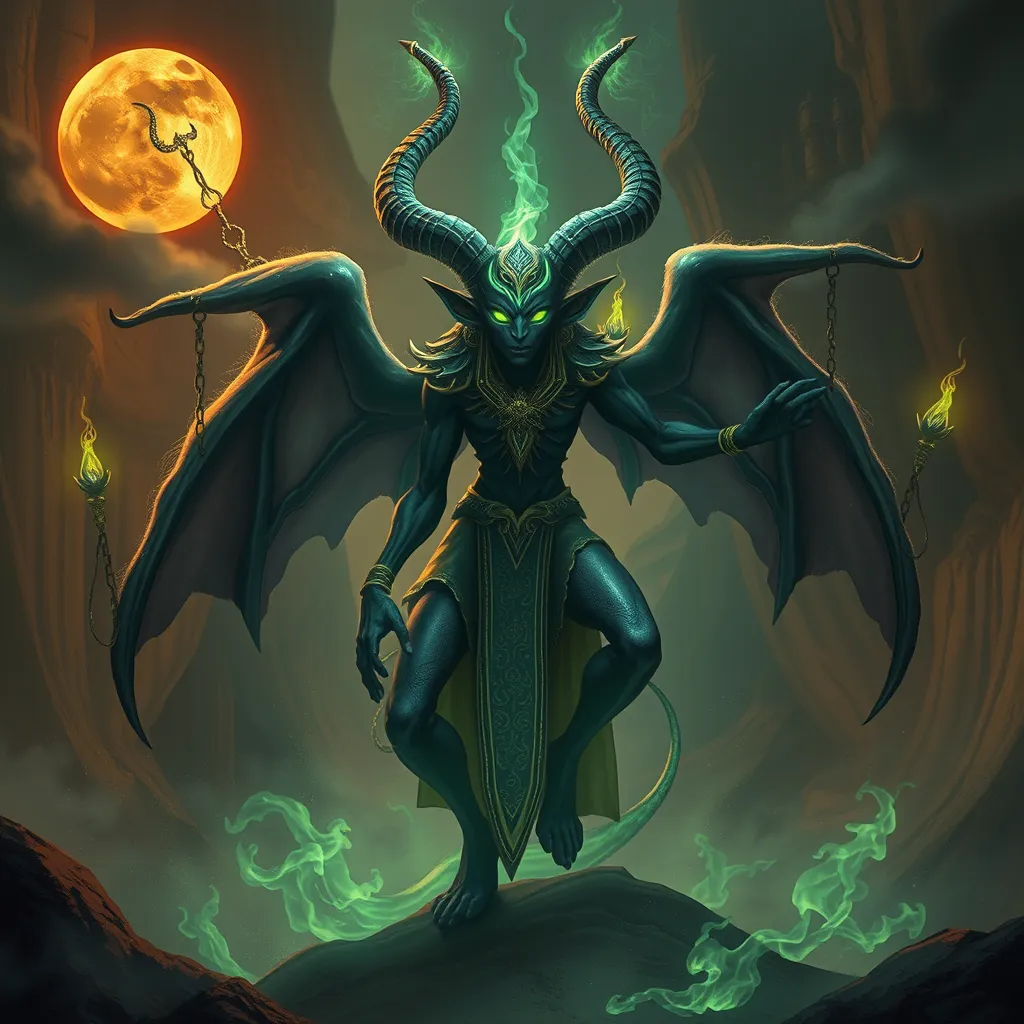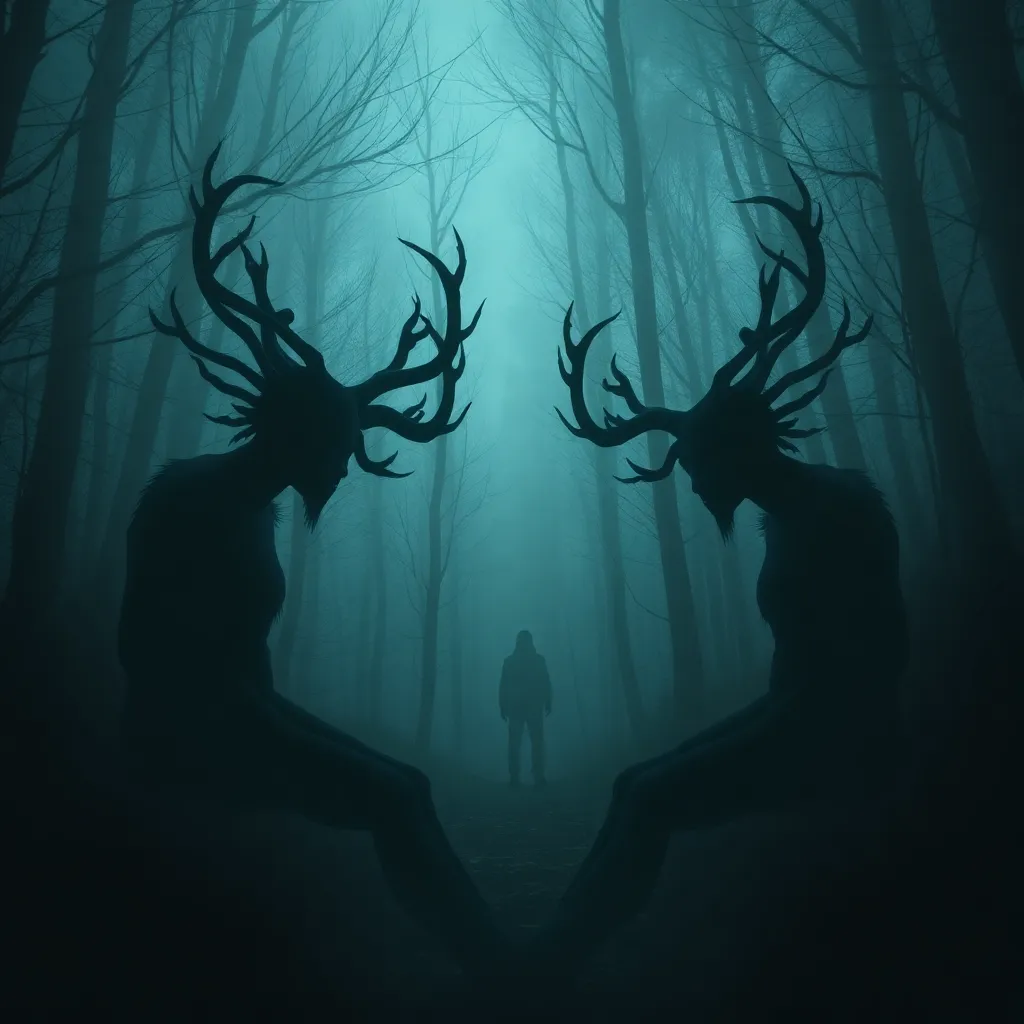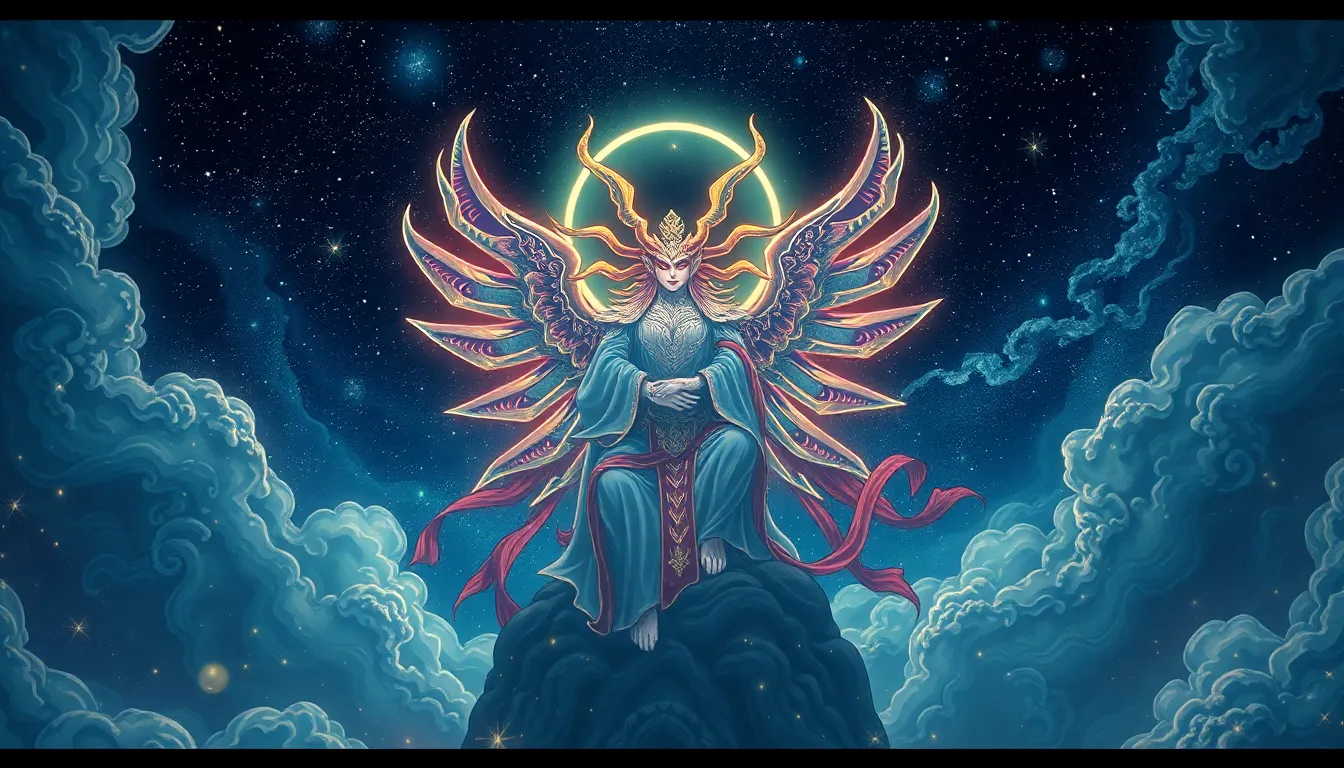The Jinn in African Mythology: Guardians of the Spirit World
I. Introduction
The concept of Jinn occupies a unique position in African mythology, intertwining with various cultural beliefs and practices across the continent. In this context, Jinn are often viewed as supernatural beings that can interact with the human realm, possessing both benevolent and malevolent traits. The significance of Jinn extends beyond mere folklore; they are deeply embedded in the spiritual fabric of numerous African cultures, representing the complex relationships between humanity, nature, and the spiritual world.
This article aims to explore the multifaceted nature of Jinn in African mythology, examining their historical origins, characteristics, roles in spiritual practices, and contemporary relevance. By delving into the rich tapestry of Jinn narratives and beliefs, we can better appreciate their influence on African cultural identity and spirituality.
II. Historical Origins of Jinn in Africa
The origins of Jinn in Africa can be traced back to various historical interactions, including trade routes, cultural exchanges, and the spread of religious beliefs. The introduction of Jinn to African societies is often linked to the expansion of Islamic teachings during the 7th century, as Arab traders and scholars brought with them the concept of Jinn as described in the Qur’an.
However, the portrayal of Jinn is not uniform across the continent. Various regions have developed their interpretations, influenced by local traditions and belief systems. For instance:
- In North Africa, Jinn are often associated with desert spirits and are believed to inhabit remote places.
- In West Africa, they may be linked to water bodies and are often seen as protectors of rivers and lakes.
- In East Africa, local folklore sometimes portrays Jinn as tricksters or mischievous spirits.
The influence of Arabic and Islamic beliefs has undoubtedly shaped African interpretations of Jinn, leading to a diverse range of stories and practices surrounding these entities.
III. The Nature and Characteristics of Jinn
In African folklore, Jinn are believed to possess various physical forms and manifestations. They can appear as humans, animals, or even natural phenomena, reflecting their fluid and elusive nature. This adaptability allows Jinn to navigate between the physical and spiritual realms, often engaging with humans in mysterious ways.
Jinn embody a duality that encompasses both benevolence and malevolence. While some Jinn are revered as protectors and guardians, others are feared for their potential to cause harm or mischief. This dual nature is evident in various stories where Jinn may assist or hinder humans based on their actions and intentions.
As spiritual guardians, Jinn play a crucial role in African cosmology. They are often seen as protectors of sacred spaces, natural environments, and even individuals. Their presence is believed to safeguard communities from malevolent forces and ensure harmony between the human and spiritual realms.
IV. Jinn in African Spiritual Practices
Jinn hold a significant place in African spiritual practices, where rituals and ceremonies often invoke their presence. These rituals can vary widely, but they typically aim to establish a connection with the Jinn, seeking their guidance, protection, or favor.
In many cultures, Jinn are integral to divination and healing practices. Practitioners may call upon Jinn to reveal hidden knowledge or to assist in the healing of physical or spiritual ailments. The interaction with Jinn is seen as a way to tap into deeper spiritual insights and wisdom.
Moreover, Jinn serve as intermediaries between the physical and spiritual realms. They facilitate communication with ancestors and other spiritual entities, reinforcing the belief that the spirit world is closely intertwined with the everyday lives of individuals and communities.
V. Jinn Tales and Legends
Throughout African folklore, numerous tales and legends feature Jinn, each carrying moral and ethical lessons. These stories often highlight the consequences of human actions and the importance of respect for the spiritual realm. Notable examples include:
- The tale of a traveler who encounters a Jinn while seeking water in the desert, illustrating the necessity of humility and respect for nature.
- A story about a Jinn protecting a village from external threats, emphasizing the value of community and cooperation.
- Legends of trickster Jinn, who teach lessons about wisdom and caution through their mischievous antics.
These narratives not only entertain but also serve as a means of cultural preservation, reinforcing communal values and identity.
VI. Jinn and the Concept of the Spirit World
Understanding the spirit world is essential in the context of African cosmology, where Jinn are viewed as integral components of a complex spiritual landscape. The spirit world is often populated by various entities, including ancestral spirits, nature spirits, and Jinn, each fulfilling specific roles.
Jinn share a unique relationship with ancestral spirits, often acting as protectors and guides. They are believed to facilitate communication between the living and the departed, ensuring that ancestral wisdom and guidance are accessible to the community.
Furthermore, Jinn are regarded as guardians of sacred spaces and natural environments. Their presence is thought to maintain balance and harmony, reminding individuals of the interconnectedness of all life forms.
VII. Contemporary Perspectives on Jinn
In modern African society, the relevance of Jinn persists, albeit in transformed forms. With the advent of globalization and modernization, traditional beliefs are often blended with contemporary practices, leading to a dynamic interpretation of Jinn.
Jinn have found their way into popular culture, literature, and media, often depicted in various narratives that resonate with both traditional and modern audiences. This fusion allows for a richer understanding of Jinn, as they continue to inspire creativity and reflection in contemporary contexts.
Additionally, many individuals still engage with traditional practices involving Jinn, seeking their guidance and protection in an ever-changing world. The enduring belief in Jinn speaks to the resilience of cultural heritage and the importance of spirituality in navigating life’s challenges.
VIII. Conclusion
The exploration of Jinn in African mythology reveals their profound significance as guardians of the spirit world. From their historical origins and diverse characteristics to their roles in spiritual practices and contemporary society, Jinn embody the complex interplay between humanity and the spiritual realm.
As we reflect on the key points discussed, it becomes clear that the legacy of Jinn is deeply woven into the cultural fabric of Africa, serving as a bridge between the past and the present. Understanding Jinn is not only vital for appreciating African mythology but also for recognizing the enduring importance of cultural heritage and spirituality in our lives.




